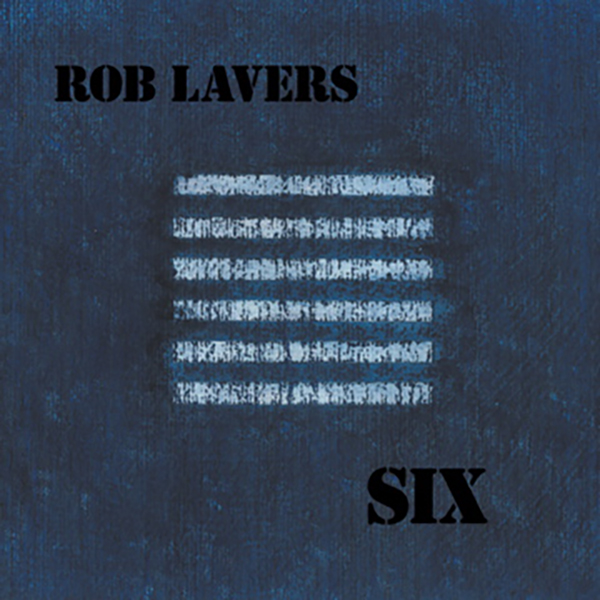
by Ian Mann
May 24, 2010
/ ALBUM
Serves notice that here is a talent deserving of greater recognition.
Rob Lavers is a versatile saxophonist and flautist who divides his time between London, France and the North of England. I remember being impressed by Lavers’ 2004 début album “Stretch” but missed out on “Small Creature” (2007), “Child’s Eye” (2008) and “H-A-T-S” (2009). I’ve also heard him with guitarist Nicolas Meier on Meier’s 2005 release “Orient”. Other artists Lavers has worked with include singer/songwriter Rosie Brown and jazz composer Fiona Nehama Abrahami.
Laver’s latest album as a leader finds him fronting a sextet that combines French and British musicians. The UK contingent includes northerners Neil Yates (trumpet & flugelhorn) and Stuart MacCallum (guitar) plus London based Tom Mason (double bass). From France come the acclaimed pianist Laurent De Wilde, also heard here on Fender Rhodes, and drummer Laurent Robin who previously worked with Lavers on on “Small Creature”. The material consists of a strong programme of ten Lavers originals that cover an impressive stylistic range.
“Fourteen Steps” is an attention grabbing opener with a funky, shuffling beat that acts as the framework for fiery solos from Lavers on soprano, Yates on squiggling trumpet and an exuberant De Wilde on piano. There’s some bright, crisp ensemble playing too with the whole driven forward by Robin’s neatly energetic drumming. A hugely infectious and enjoyable start.
By way of contrast “The Green Room” begins as a shimmering, atmospheric ballad featuring Yates on breathy trumpet. De Wide is on electric piano and there are key contributions from MacCallum’s shadowy guitar, Mason’s resonant bass and Lavers on flute. The piece acquires a mysterious funkiness as it progresses. Lavers has a keen interest in the visual arts including film and painting and there’s a strong pictorial quality about the music here.
“Odd Compulsions” retains the funk element with De Wilde remaining on Fender Rhodes for this soulful work out. Lavers digs in on tenor for his first solo followed by Yates on trumpet and MacCallum on guitar. The leader then alternates between soprano and tenor ,linking up well with Yates as De Wilde’s earthy Fender Rhodes drives the piece forwards.
“When It Rains” is a lovely ballad with warm and tender tenor from Lavers sympathetically supported by the rest of the group. Yates is velvety and fluent on flugel and MacCallum tastefully fluid on guitar. On acoustic piano De Wilde contributes his most lyrical work to date.
I assume that “For Sonny” is a tribute to the great Mr. Rollins. It’s an easy swinging blues with Lavers’ suitably muscular tenor, MacCallum’s languidly bluesy guitar and De Wilde’s Fender Rhodes which is both bluesy and subtly funky. Robbins enjoys a series of drum breaks mid tune, each significantly different to the last.
The modal “Folklore” features good interplay between Yates and Lavers and a powerful solo from the trumpeter above the rolling thunder of Robin’s drums. De Wilde’s acoustic piano solo is full of a tumbling, percussive intensity.
“Mathys” opens with martial sounding drums before developing into a boppish theme which features good interplay between the horns. Driven by Robin’s playful drumming ( he’s featured towards the end) and De Wilde’s piano promptings the whole piece has a joyous, irreverent air about it.
“The President” has the feel of an old Blue Note release with De Wilde’s piano figures initially driving the track. He takes the first solo, inventive and idiosyncratic before being followed by Lavers’ earthy tenor and Maccallum’s blues tinged guitar. Good unpretentious swinging fun.
“Gambetta” is similarly enjoyable and the band again exude an air of enjoyment with a series of pithy, exuberant solos. Yates goes first his playing full of all the trumpeters tricks- smears, half notes and so on. Lavers goes next on tenor followed by MacCallum on guitar and the excellent De Wilde on acoustic piano. Mason excels with a fine bowed bass solo before the ensemble go breezing out.
“Blank Tapes” sees the group finishing off by invading fusion territory as Robin adopts a rock rhythm and MacCallum cranks his guitar up. Solo honours are taken by De Wilde with a feverish work out on Fender Rhodes, Lavers on big boned tenor and Robin with a series of explosive drum breaks.
“Six” is a hugely enjoyable album with some fine playing from all involved and with Lavers and the versatile De Wilde particularly impressive. There’s some characterful writing from Lavers too and although “Six” isn’t memorable enough to propel Lavers into the jazz big league it still serves notice that here is a talent deserving of greater recognition.
See http://www.roblavers.co.uk for further information regarding recordings and live appearances etc.
blog comments powered by Disqus